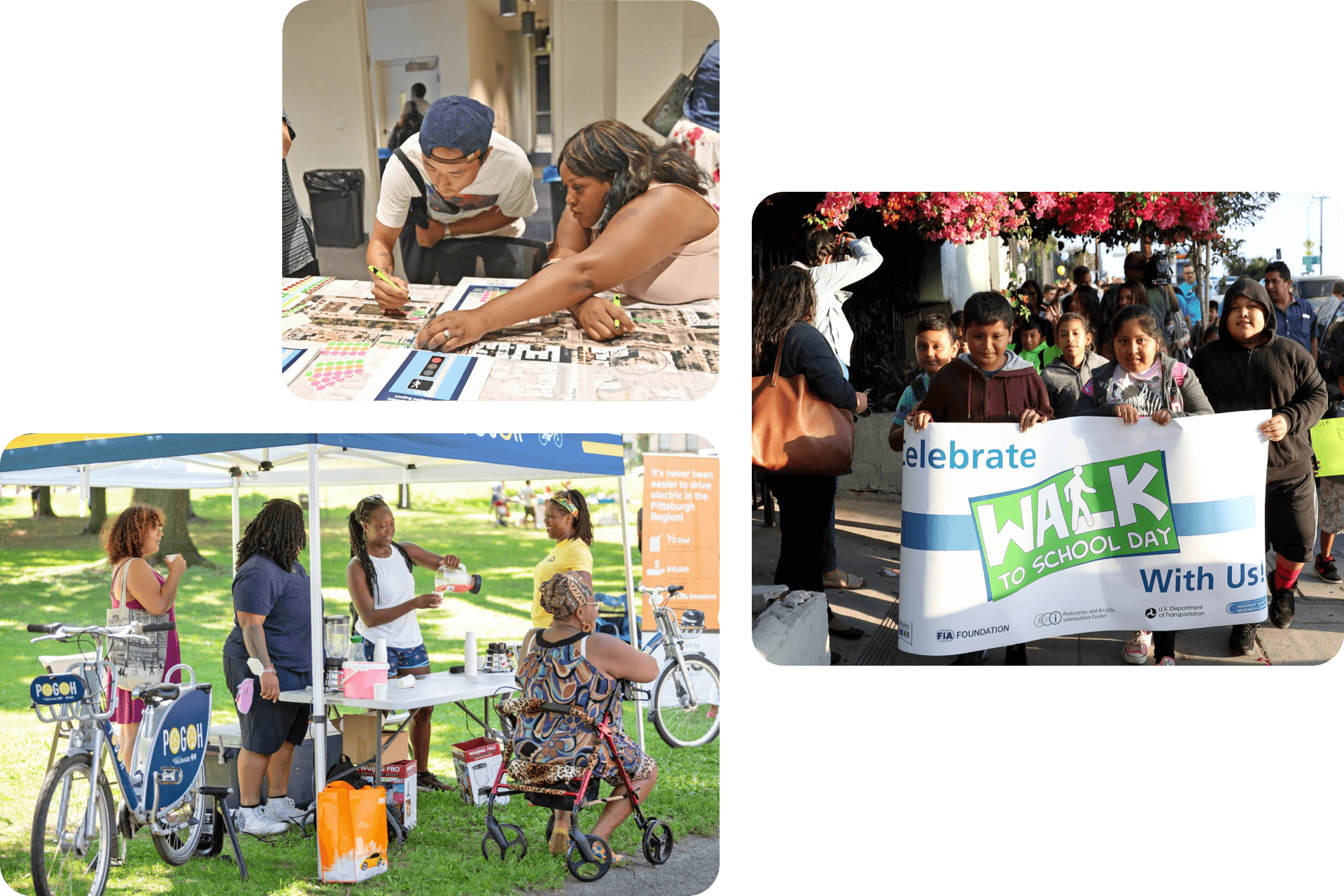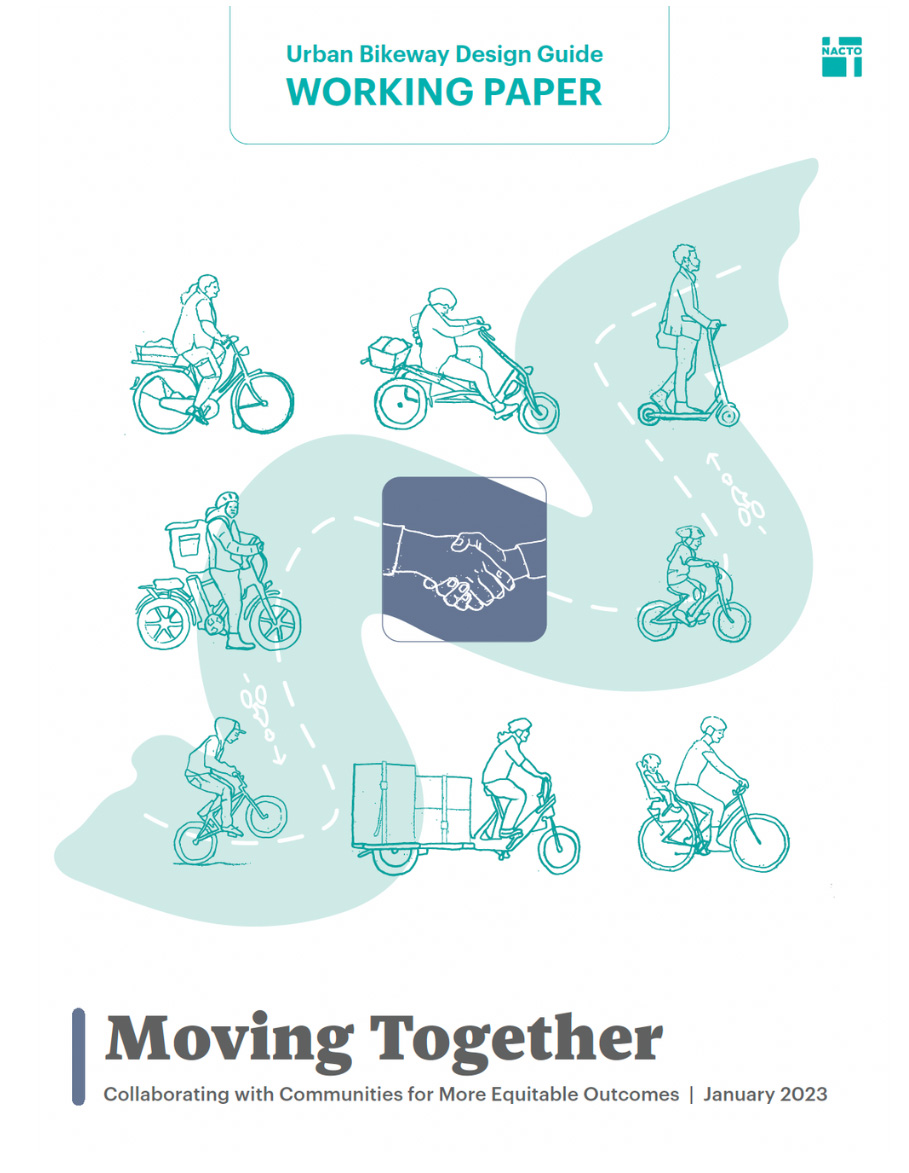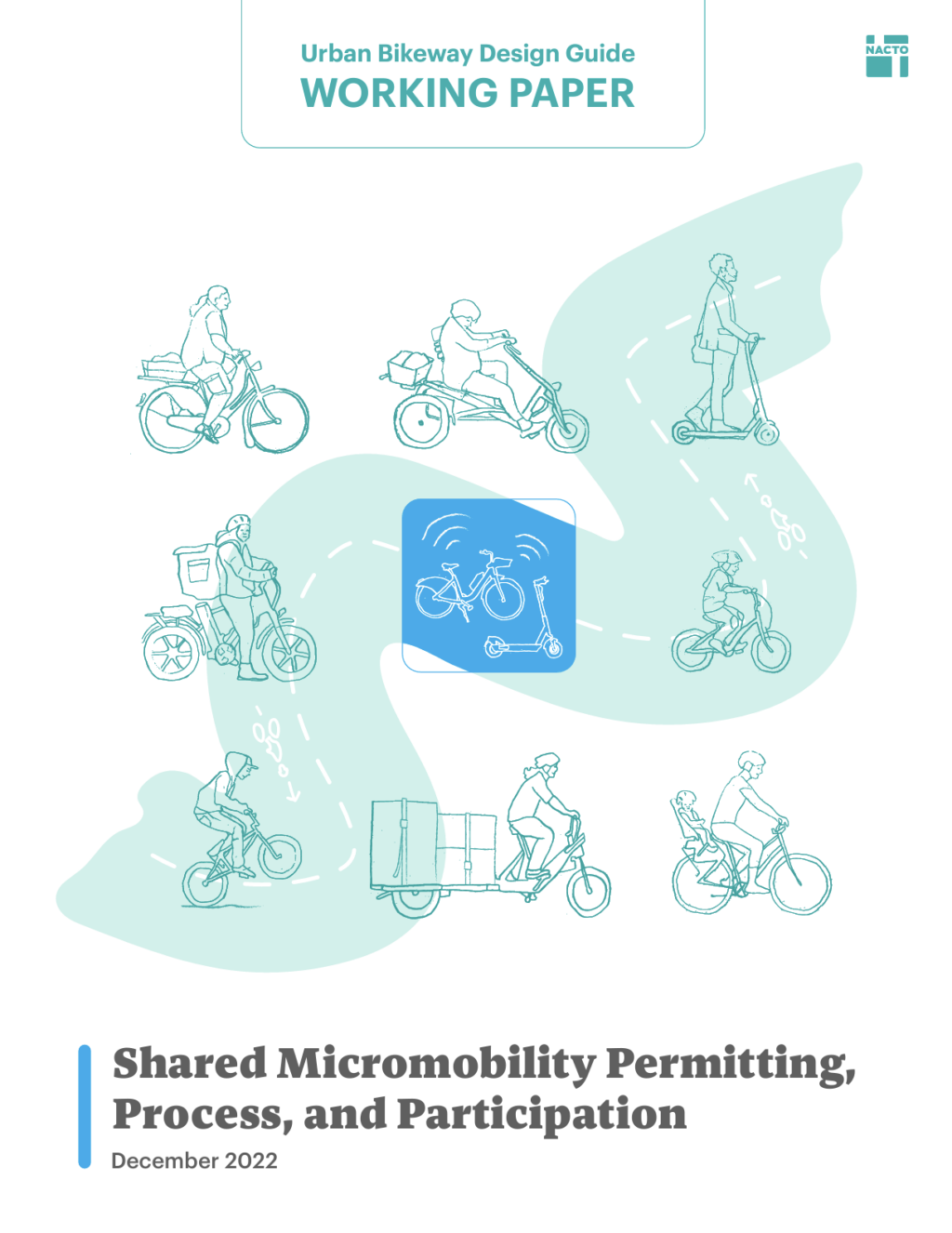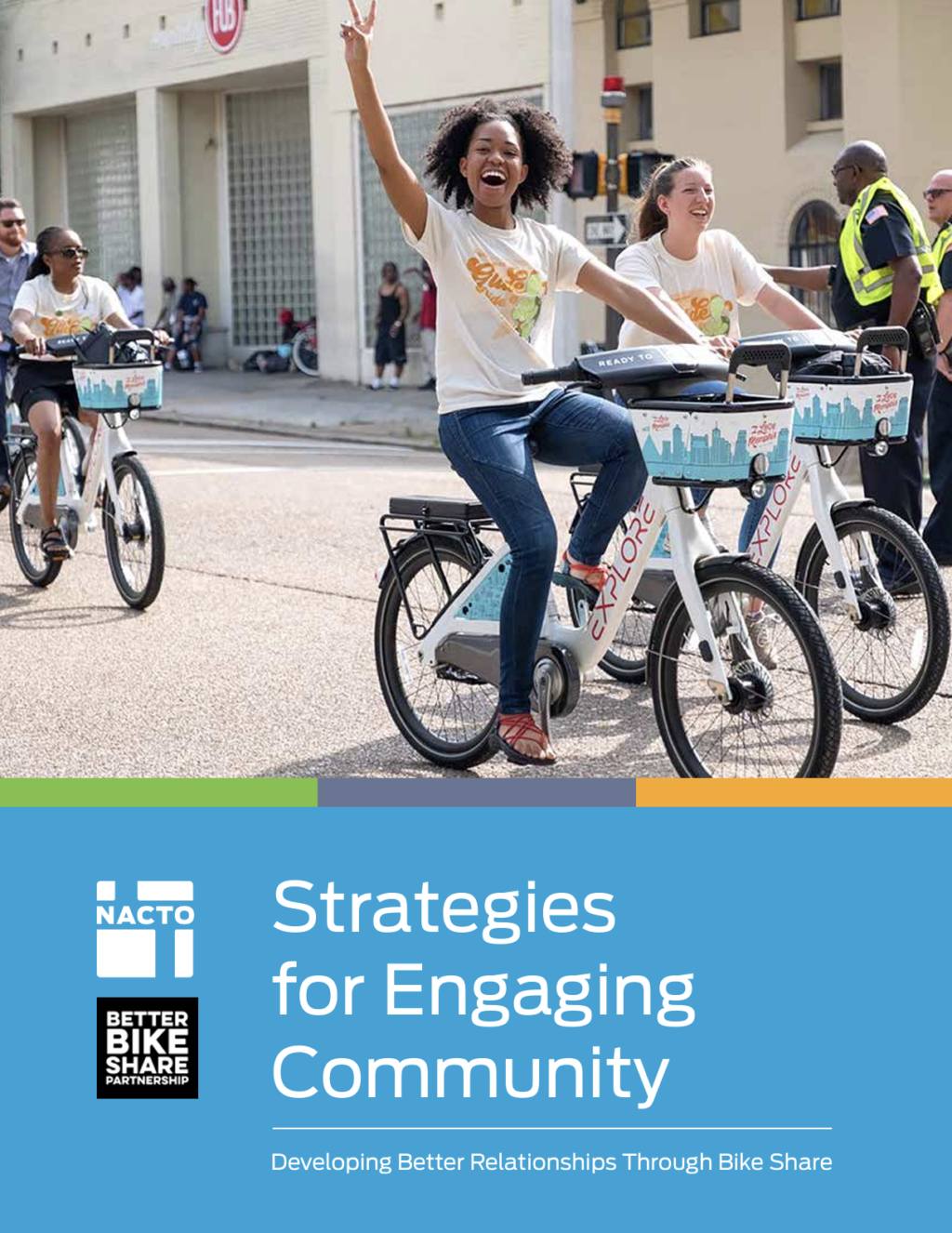Collaborative engagement relies on strong relationships between communities and city staff.
Building support for changes to neighborhood streets may require frequent and early conversations with community leaders and incorporating neighborhood priorities into scopes. Successful project and program managers look to community members as partners, building trust through honest and regular communication.
Collaborative engagement will not and should not achieve unanimous agreement. Cities need to navigate disagreement, adjusting scopes to address community needs while maintaining alignment with citywide priorities, such as achieving Vision Zero.
Many city transportation departments across the U.S. and Canada are also taking ownership of harmful pasts rooted in racist disinvestment. Investing in rebuilding collaborative relationships with underserved communities is a pathway toward justice.
NACTO supports cities by emphasizing the value of collaborative engagement, identifying best practices and successful examples, and developing recommendations for strategies that staff can implement.
Collaborative engagement efforts will not be perfect from the start, and NACTO provides a platform for staff from different cities to learn from each other, convening city leaders and practitioners to share success stories and common challenges.
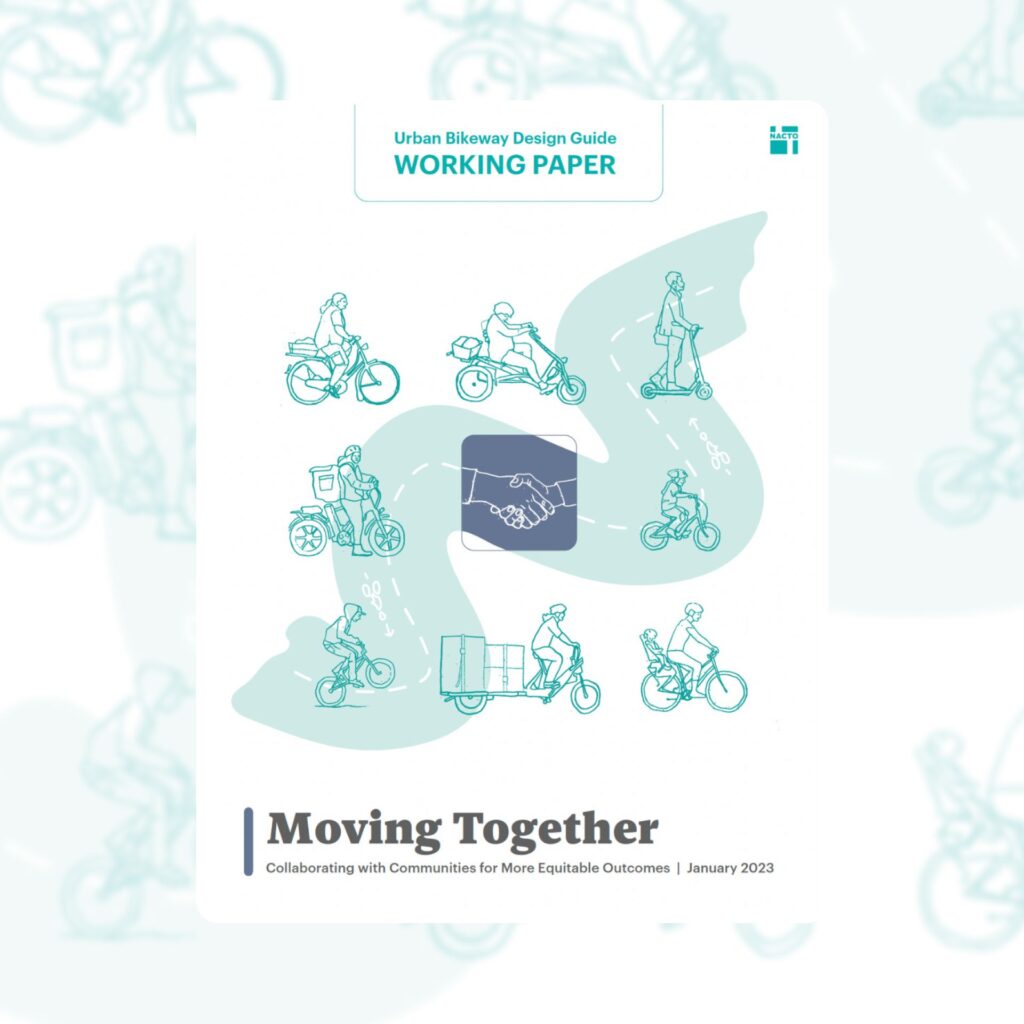
Practitioner Paper
Moving Together for More Equitable Outcomes
Strategies to help cities collaborate with communities to equitably address inevitable obstacles and disagreements.
Photo Credits: Walk to School Day via Los Angeles Department of Transportation
